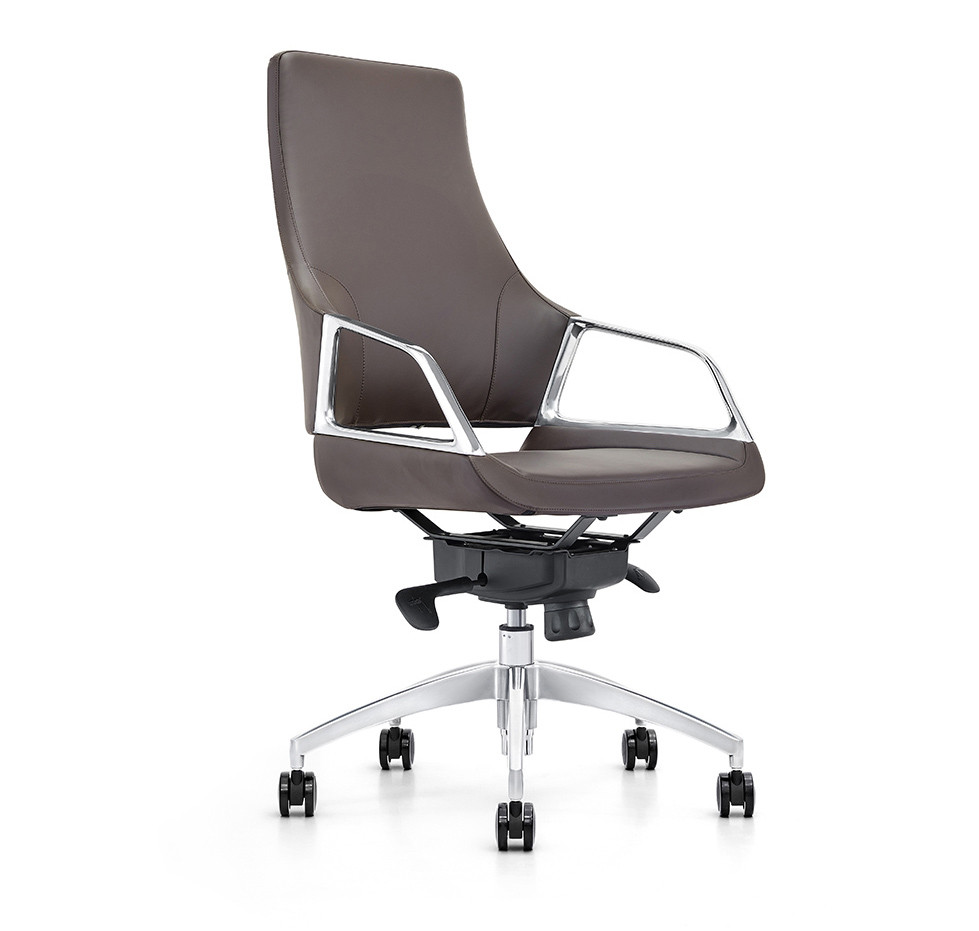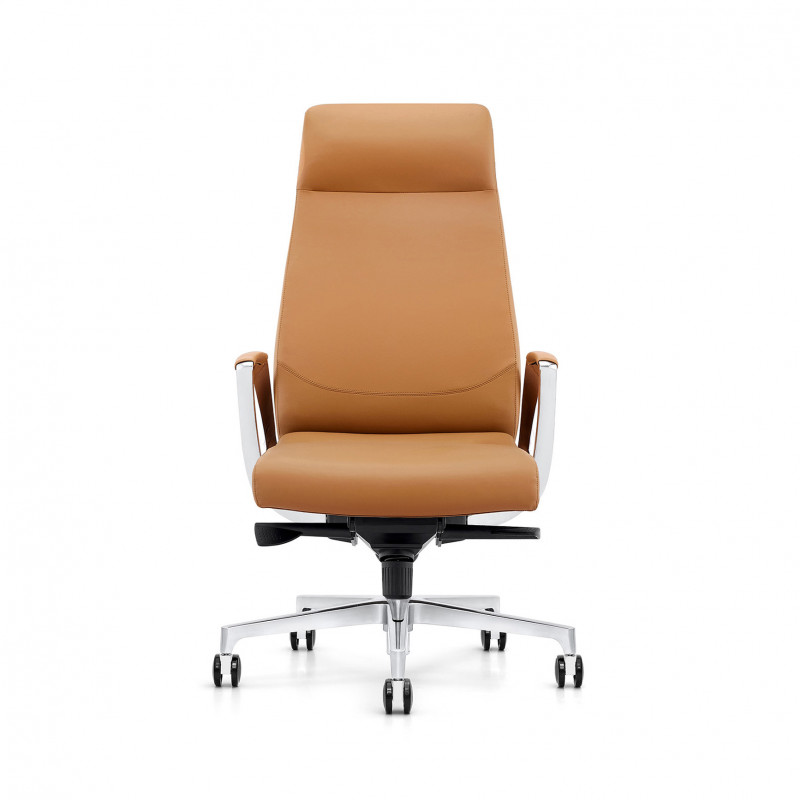
The Quiet Office Chair: Ideal for Noise-Sensitive Environments
Introduction
In modern office spaces, especially those designed for focused work, noise can be a significant distraction. Whether it's the sound of wheels rolling, chair adjustments, or other creaks and noises, disruptive sounds can hinder concentration and productivity. In noise-sensitive environments, it's essential to select office chairs that operate quietly. These chairs minimize noise, ensuring a peaceful and productive workspace. In this article, we'll explore the importance of quiet office chairs and highlight some of the best options for noise-sensitive environments.
1. Understanding Noise in the Office
Office noise can stem from various sources: conversations, phone calls, and the movements of office furniture, including chairs. Chairs that make squeaky sounds or generate noise when adjusted can disrupt the peace of a quiet environment. The ideal office chair in noise-sensitive settings is designed to minimize these disturbances, providing a serene atmosphere conducive to work.
2. Why Noise Matters in the Office
Noise has been shown to negatively impact focus, stress levels, and overall productivity. In settings like law offices, financial firms, or design studios, where deep concentration is required, excessive noise can be a barrier to efficiency. Quiet office chairs contribute to a more serene environment, promoting better focus and a calm atmosphere.
3. Key Features of Quiet Office Chairs
The best quiet office chairs are designed with sound-absorbing materials, smooth mechanisms, and careful construction. Features that contribute to a chair's quietness include:
-
Soft rolling casters: These casters are designed to glide smoothly without creating loud noises on hard floors.
-
Quiet reclining mechanisms: Some office chairs are equipped with quiet tilt and recline systems that prevent squeaks or abrupt sounds when adjusting the chair.
-
Cushioned materials: Soft, high-quality cushioning in the seat and backrest can dampen any noise that may occur when the user shifts positions.
4. The Role of Chair Materials in Reducing Noise
Materials play a significant role in noise reduction. Chairs with leather upholstery, for instance, tend to be quieter than fabric or mesh-covered chairs. Leather absorbs sound better, reducing the noise created by friction between the user and the chair. Additionally, leather tends to be more durable and offers a smooth, quiet seating experience. Chairs made with high-quality materials, such as leather and high-density foam, are designed to enhance comfort while reducing noise.
5. Choosing the Right Casters for Noise Reduction
Casters are often a source of noise in office chairs. Hard casters can create a lot of noise on hard floors, while softer casters or rubber casters can reduce sound significantly. When selecting a chair for a noise-sensitive environment, look for chairs with soft casters that are designed to minimize rolling sounds. These casters will glide smoothly across the floor without causing disruptions.
6. The Importance of Chair Adjustability
In noise-sensitive environments, it's not just the initial noise that's important—adjusting the chair should also be quiet. Adjustable features, such as seat height, lumbar support, and armrests, should function smoothly without making loud clicking or squeaking noises. A chair with a smooth, quiet adjustment mechanism will ensure minimal disruption during use.
7. Benefits of Quiet Office Chairs
Quiet office chairs provide numerous benefits beyond reducing noise. These chairs can:
-
Increase concentration: With fewer distractions, employees can focus better on their work.
-
Reduce stress: Constant background noise can increase stress levels. Quiet office chairs create a calming environment.
-
Enhance productivity: A peaceful office setting allows employees to work without the distraction of squeaky chairs or noisy movements.
8. Quiet Chairs for Conference Rooms and Shared Spaces
Conference rooms and open office spaces often have multiple chairs, and noise can be an issue when everyone shifts or adjusts their seating. Choosing quiet chairs for these areas ensures that meetings remain focused and free of disruptions. Chairs with silent casters and smooth mechanisms are perfect for maintaining a professional, noise-free environment.
9. The Impact of Quiet Chairs on Office Aesthetics
Beyond functionality, quiet office chairs also add to the aesthetic appeal of the workspace. Leather chairs, for example, lend a luxurious, professional look while maintaining quiet operation. The right chair can contribute to both the visual and auditory atmosphere of the office, creating a more pleasant and efficient work environment.
10. How Quiet Office Chairs Improve Employee Well-being
A quiet office environment contributes to better employee well-being. The reduction in noise helps employees stay calm, reduce stress, and focus more effectively. When employees feel comfortable and undistracted, it leads to higher job satisfaction and improved mental health.
Additional Considerations for Quiet Office Chairs
-
Chair Frame Construction
The construction of the chair frame can impact noise levels. A sturdy, well-constructed frame helps prevent rattles and squeaks that might occur with cheaper, lower-quality materials. -
Chair Padding and Foam
Thick, high-quality foam padding can reduce noise, particularly when adjusting the chair. This helps create a quieter seating experience by dampening sounds from movements or shifts in posture. -
Soundproofing Office Space
While a quiet office chair is essential, additional soundproofing measures, such as carpeting, acoustic panels, and soft furnishings, can further enhance the overall noise level in the office. -
Smooth Reclining Mechanisms
Many modern office chairs come with smooth reclining functions that don’t create noise. These chairs are ideal for environments where relaxation or taking breaks is needed without disturbing others. -
Ergonomic Features for Comfort
Quiet office chairs that are ergonomically designed not only enhance comfort but also promote healthy posture. A chair with smooth adjustments and minimal noise is more likely to encourage correct posture and prevent discomfort from prolonged sitting. -
Chair Design for Minimal Movement Noise
The design of the chair can help minimize unnecessary movement that could lead to noise. Look for chairs that have a stable base and are designed for minimal movement during use. -
Noise Reduction Materials
Some office chairs feature noise reduction materials in key areas such as the base or casters. These materials are specifically designed to absorb vibrations and prevent loud sounds during use. -
Suitability for Remote Work
For remote workers, a quiet office chair is essential for maintaining a peaceful and productive work environment at home. A noise-free chair ensures that work sessions remain undistracted, even in shared or noisy home environments. -
Customization Options
Some office chairs offer customizable features, including noise-reducing options for specific components. Choosing a chair that allows for adjustment of casters, seat padding, and reclining mechanisms can ensure the chair fits both comfort and quietness needs. -
Price vs. Quality
High-quality office chairs that reduce noise may come with a higher price tag. However, the investment in a quiet, comfortable chair is worthwhile, especially in environments that demand focus and minimal disruptions.
Recommended Products

-
Lusa Viral Executive Low Back Chair (Leather)
Crafted with luxurious leather, this chair offers both style and quiet operation, making it ideal for noise-sensitive office environments.
-
Bambi Executive High Back Chair (Leather)
With smooth reclining features and high-quality leather upholstery, this high-back chair ensures minimal noise and maximum comfort for long hours of sitting.
Final Thoughts
In noise-sensitive office environments, quiet office chairs are essential for maintaining focus and productivity. Chairs with sound-absorbing materials, smooth mechanisms, and durable construction can help create a peaceful workspace. By selecting the right office chair, you can reduce distractions and contribute to a more efficient, comfortable, and calming environment.
FAQ
What makes an office chair "quiet"?
An office chair is considered quiet if it has noise-reducing features such as smooth casters, silent reclining mechanisms, and cushioned materials that prevent creaks and squeaks.Are leather office chairs quieter than fabric chairs?
Yes, leather office chairs tend to be quieter than fabric chairs. The smooth surface of leather reduces friction, which can help minimize noise when adjusting or moving the chair.Can quiet office chairs improve focus?
Yes, by reducing noise distractions, quiet office chairs help maintain a calm and focused environment, which can enhance concentration and productivity.Are there adjustable features that affect noise in office chairs?
Yes, the adjustment mechanisms, such as seat height, lumbar support, and reclining features, can all affect the noise level of the chair. Opting for a chair with smooth, silent adjustments ensures minimal disruption.


